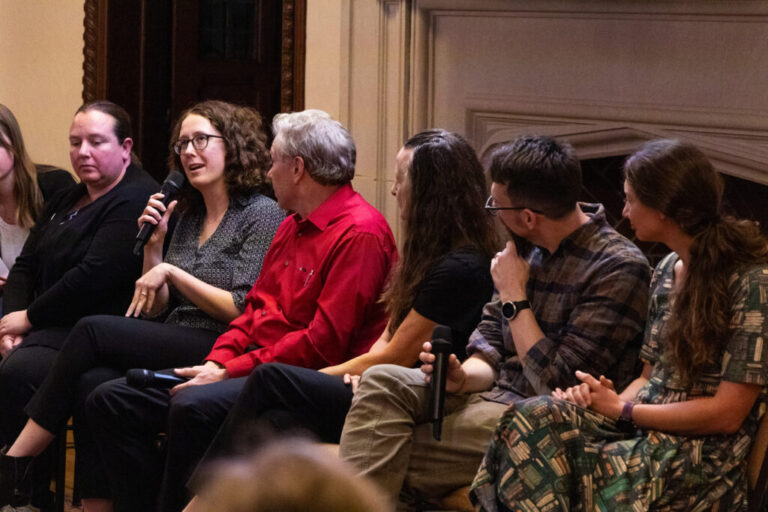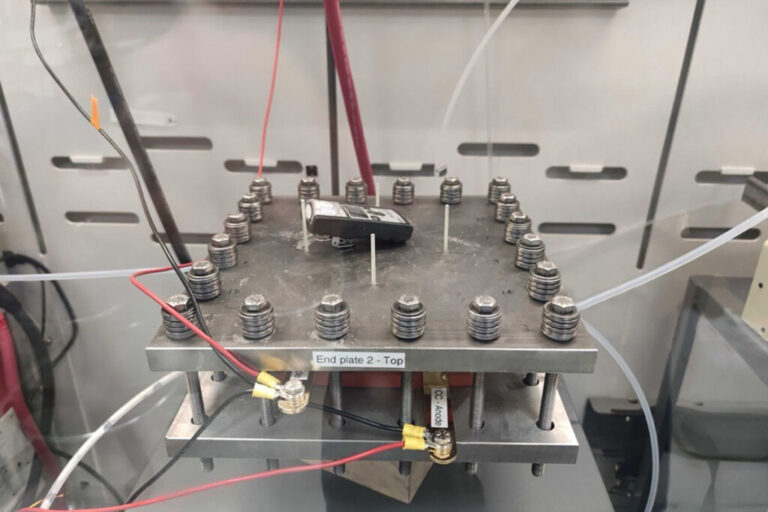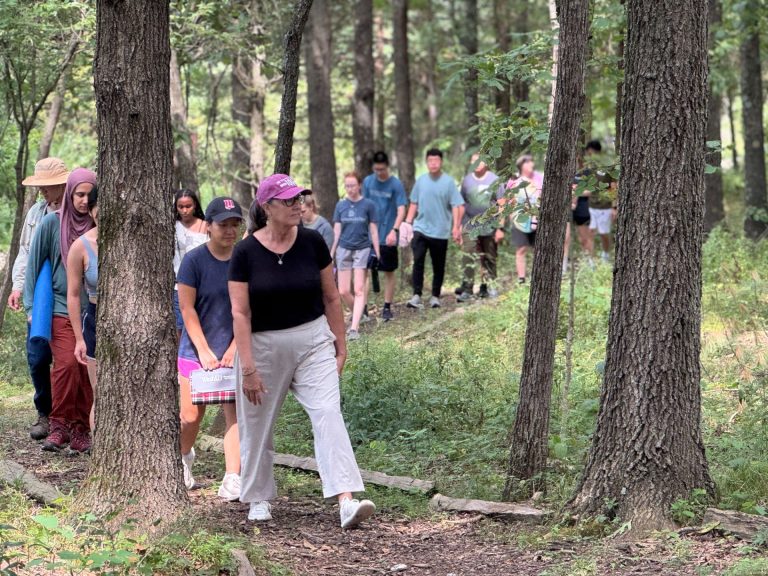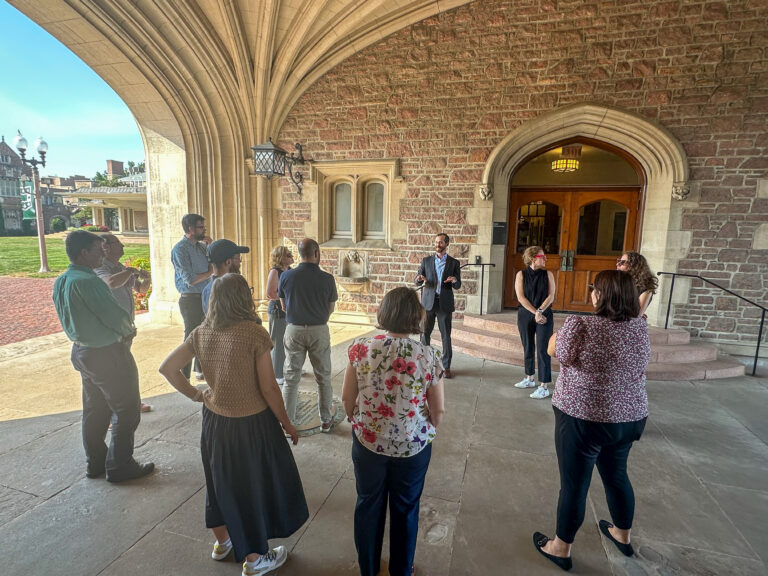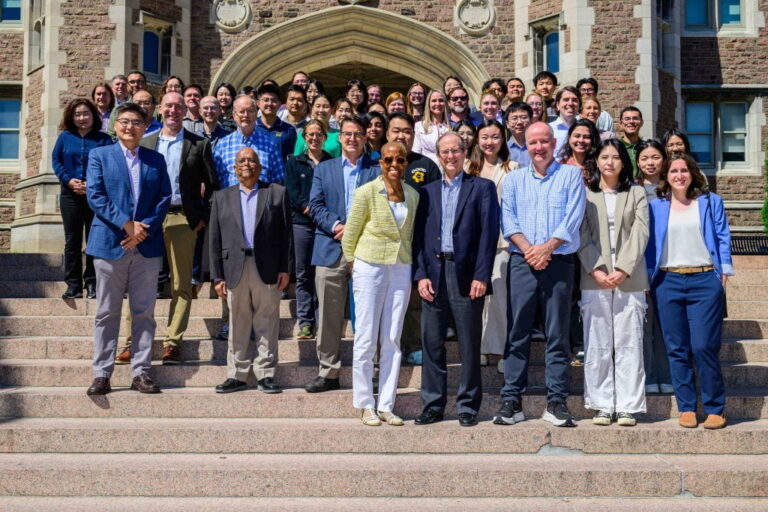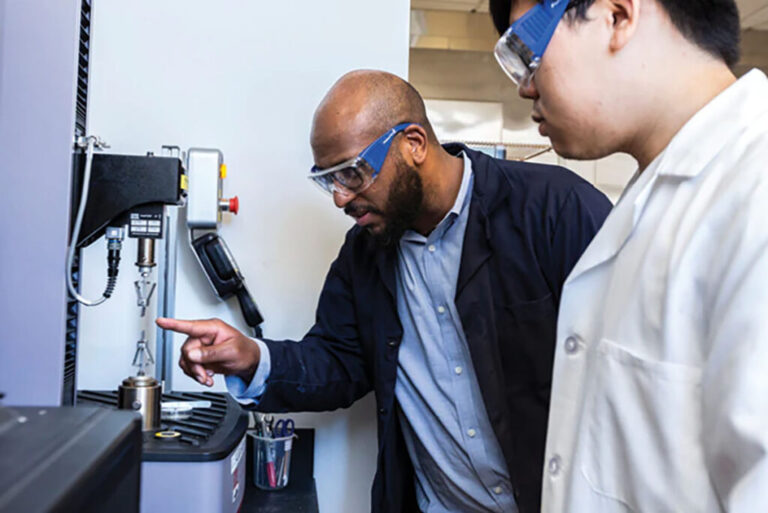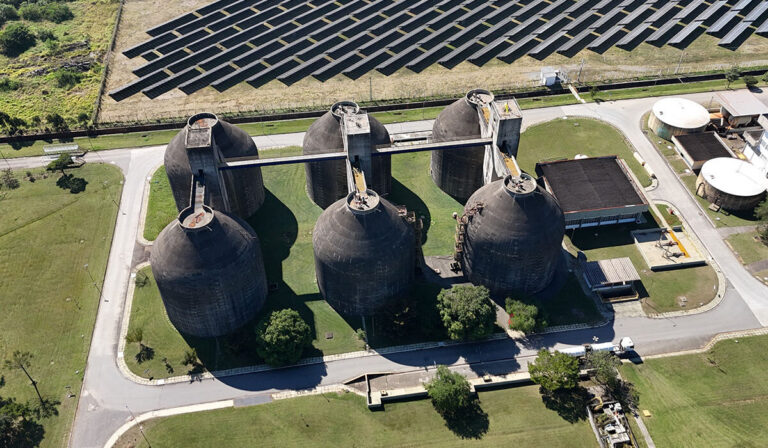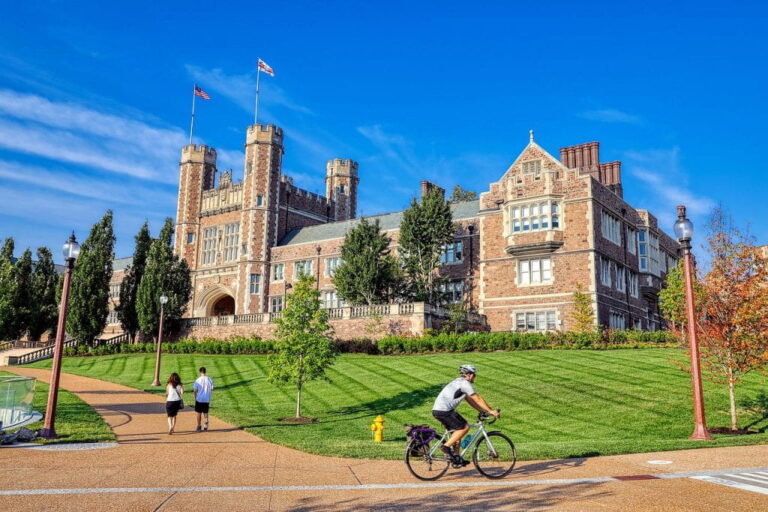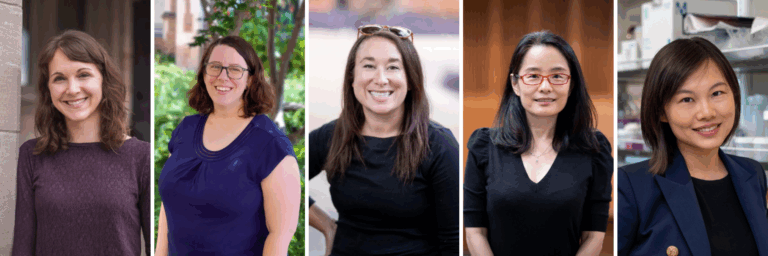St. Louis community organizers and WashU professors gather to discuss religion and the environment
The Department of English hosted “A Conversation on Religion and the Environment: Academia, Community, Activism” to discuss across disciplines the intersectionality of religion and the environment in the St. Louis and WashU communities.
Inexpensive materials transform waste carbon into energy-rich compounds
Jiao’s lab provides alternative to boost compatibility with renewable energy
Can we make drinking water safer?
This WashU program taps into a simple solution using household water filters to monitor and track safety.
SPARK ignites sustainability leadership for students
In August, the WashU Office of Sustainability kicked off an academic year of student-driven environmental change with its SPARK leadership program.
ACCESS was a success for WashU Center for the Environment
At a time when advancing research is more challenging than ever, seven environmental research centers, institutes and initiatives from across the country came together to keep environmental progress on track.
Water Innovation Symposium explores socioeconomic challenges and opportunities in water economy
Annual event brings together faculty, students and industry professionals to discuss water research
Strengthening soy for better bioplastics
Soy proteins are used in plant-based natural polymers meant to eventually supplant plastic materials. But to compete with the petrochemical-based products, such polymers need to be stronger and less brittle.
A silver lining in sewer sludge: volatile fatty acids
Jason He, the Laura and William Jens Professor of Energy, Environmental and Chemical Engineering at Washington University in St. Louis, wanted to find more efficient ways to get riches out of the rubbish.
October is Active Transportation Month
October is one of two Active Transportation Months (ATM) at WashU hosted by Parking & Transportation, Office of Sustainability, and WUSM Operations & Facilities Management.
Multidisciplinary team secures $3.6M grant to investigate health risks from flooding
A cross-disciplinary team of WashU researchers has received a five-year, $3.6 million grant from the National Science Foundation to expand its work studying the human health effects of flooding in communities in the Mississippi Delta and the St. Louis Metro East region of Illinois.
